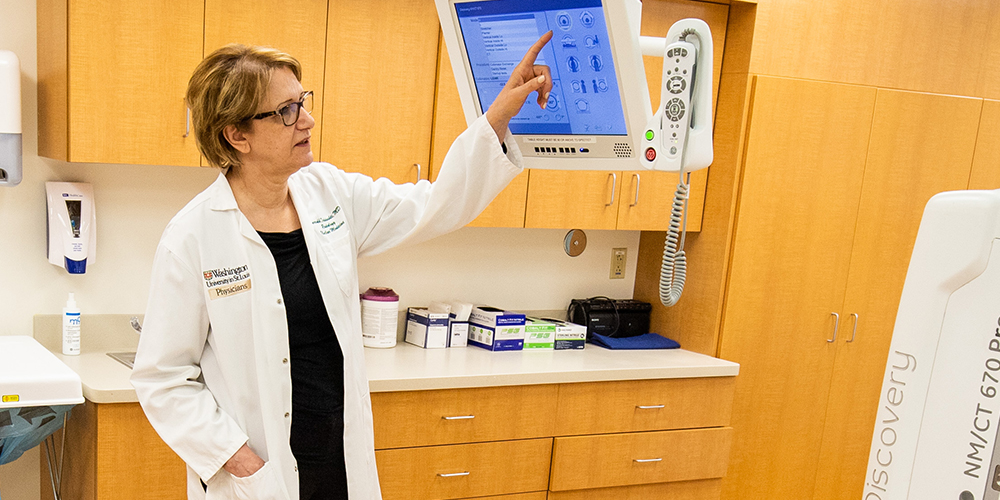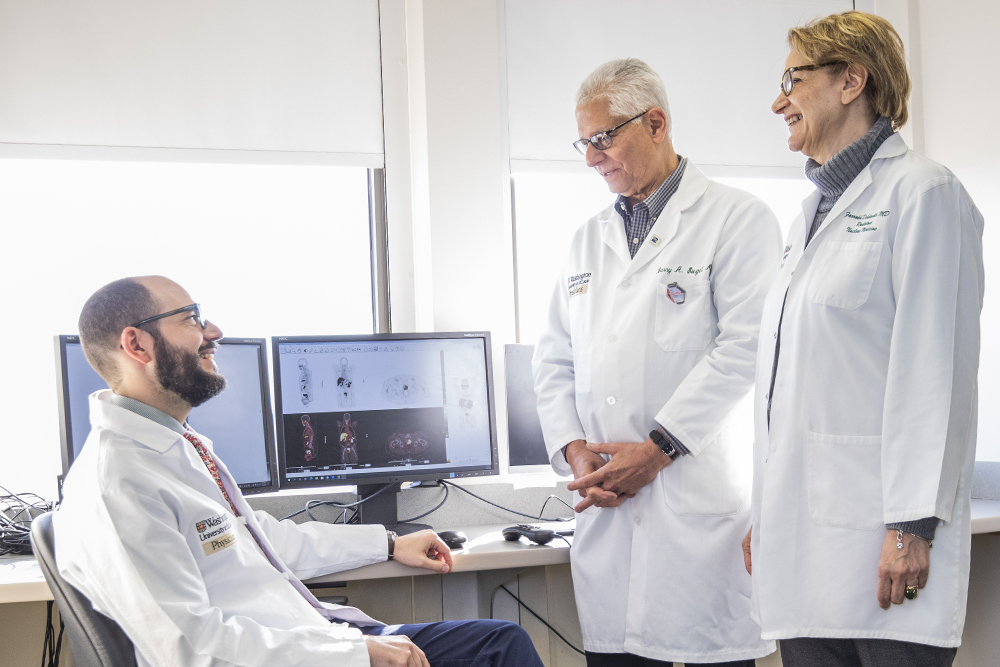
Senior Vice Chair and Division Director of Nuclear Medicine
Nuclear Medicine Expertise
Nuclear medicine helps doctors diagnose disease earlier to make treatment more effective. It’s the best early warning system for a number of conditions, including certain kinds of heart disease, thyroid disease, tumors and bone changes. Our nuclear medicine physicians are known for their expertise, interpretation and innovation, and continue to be leaders in PET clinical imaging and research, changing the way many diseases are treated. In addition, MIR’s team also actively supports the School of Medicine’s clinical theranostics program, which provides innovative, personalized medical management through targeted radiopharmaceutical diagnosis and therapy. To learn more, visit the Center for Clinical Theranostics.
No employees matched your search
Center for Clinical Theranostics Research
The division of nuclear medicine’s Center for Theranostics Research (CCTR) is a collaboration between MIR and the Department of Radiation Oncology. Services at the CCTR include clinical theranostics consultation, infusions, outpatient research and clinical follow-ups.
























